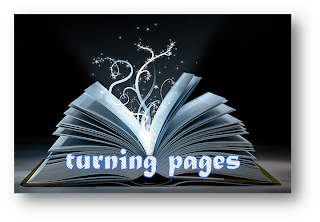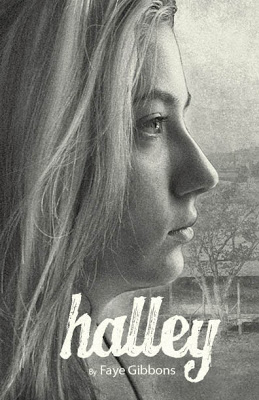 I received this book courtesy of New South Books, a small press based in Montgomery, Alabama. After skimming the initial description of the book – that it was about a preacher’s granddaughter – I assumed it was a novel about an African American girl. The striking gray-scale sketch-and-photograph cover immediately corrected that assumption. The novel is set in the mountains of Georgia, which is from where the author, Faye Gibbons, hails.
I received this book courtesy of New South Books, a small press based in Montgomery, Alabama. After skimming the initial description of the book – that it was about a preacher’s granddaughter – I assumed it was a novel about an African American girl. The striking gray-scale sketch-and-photograph cover immediately corrected that assumption. The novel is set in the mountains of Georgia, which is from where the author, Faye Gibbons, hails.
SUMMARY: Fourteen-year-old Halley Owenby had a life she loved, once. Her family, made up of her father Jim, her mother, Kate, herself, and her brother, Robbie, was poor, but so was everyone in their little town, and it really didn’t make much of a difference to them as they worked and sang through their days. One of the few families with a piano, Halley only slightly envies Robbie’s skill in playing anything he’s ever heard. Halley has her books and her good friend Dimple to keep her occupied. She has a hungry mind, eager to learn all she can, and is saving her money from hunting ginseng in the woods to go away to high school.
When Halley’s father dies in an accident involving an illegal moonshine still, everything changes. Halley’s grandparents come immediately — allegedly to help, but immediately Halley’s grandfather insists that her father has gone to hell, because, seeing as Prohibition is alive and well during this time, only sinners have anything to do with moonshine. Rather than defend her late husband, Halley’s mother crumples into the girl she grew up as, the daughter of the Baptist fundamentalist preacher who litters the countryside with signs about The Rapture. Kate becomes meek and subservient overnight — giving up the farm, leaving their town and moving over the hill to live with he and Ma Franklin. It is, as Halley suspected it would be, miserable. Aside from the casual cruelties of a controlling man, there are the indignities of being left alone, when her mother takes a job at the Belton Mill, with Ma Franklin, who is forever nagging her to do this or get that, as if she’s a surly, spoiled child. Halley’s mother is a colorless shadow of the person she was, and refuses to talk about her late husband – as if he’d never existed. Even Robbie works Halley’s nerves, ducking responsibility and making more work for her. But the very worst thing is having her dreams of an education totally extinguished. Pa Franklin is good at snuffing out the dreams of others – after all, the only thing in his mind everyone should be dreaming of is Heaven. Pa Franklin’s version of heaven is where he always gets his way, and where he has complete and total, Bible-sanctioned rights over his entire family, and his dog.
Fortunately, Pa Franklin’s idea of heaven, and even his domineering heaven-on-earth doesn’t exist for long — and Halley’s salvation from his rigid, joyless household is closer than she thinks… All it will take is resistance.
PEAKS: In many ways, this book of historical fiction parallels the American woman’s fight for freedom. Women were emerging from a long “ornamental” period by the 1920’s and some of them were stepping out, taking secretarial jobs, driving their own cars, and bobbing their hair. What started as a 20’s lark surged into necessity by the 1930’s as The Great Depression galvanized every able-bodied worker into doing their share to keep afloat. Women worked in mills, and their men ranged far and wide repairing roads and planting trees in Roosevelt’s New Deal programs intended to strengthen the sagging economy. There was no time to worry about whether women should be making their own choices and shouldering their own weight — except in tiny towns and villages in the deep country, where progress hadn’t yet really happened. The author notes that The Depression hung on longer in the mountain towns of Georgia; so did old attitudes about women and family. It is against this tyrannical bent toward control that Halley – and her mother and grandmother – must battle. It is significant that despite the many things that seem to be against them, the real adversary is a single man who believes himself to be backed by a single book and a single god… however, against him, a single word eventually suffices: NO.
In the words of John Stuart Mill, “Bad men need nothing more to compass their ends, than that good men should look on and do nothing.” When the women of Halley’s family stand together and stand against the abuse of power in their midst, Pa Franklin’s reign of terror ends. It is awesome.
 There are interesting historical “cameos” in this novel; a young woman finds religion – and embraces it, telling everyone she’s been called to preach. She’s attractive and vibrant and may remind readers of another notable woman preacher of the 1920’s-30’s, Aimee Semple McPherson. There’s also a trouser-wearing, female photographer in the novel. Theodora Langford is a sensation to the mountain towns, and of special interest to Halley, seeing as she’s a woman out on her own, making her own decisions, and her cameo is obvious, as even her name is reminiscent of the great photographer Dorothea Lange.
There are interesting historical “cameos” in this novel; a young woman finds religion – and embraces it, telling everyone she’s been called to preach. She’s attractive and vibrant and may remind readers of another notable woman preacher of the 1920’s-30’s, Aimee Semple McPherson. There’s also a trouser-wearing, female photographer in the novel. Theodora Langford is a sensation to the mountain towns, and of special interest to Halley, seeing as she’s a woman out on her own, making her own decisions, and her cameo is obvious, as even her name is reminiscent of the great photographer Dorothea Lange.
VALLEYS: Though the novel’s title character is meant to be the protagonist, the novel is as much about Halley’s mother and grandmother, in many ways. Unfortunately, this division of focus doesn’t allow readers to get as close to Halley OR her mother OR her grandmother as they could if this was wholly either of their stories. The split focus dilutes the feeling that this is a young adult novel. I suspect many adults who don’t mind slow pacing and rich details of “olden days” will enjoy this more than teen readers. It’s difficult to get a sense of Halley’s feelings on various topics. It’s clear she hates her grandfather and resents her grandmother and is bitterly disappointed in her mother, and rightly so – but not much else seems to penetrate. Halley is depicted as many of the characters in Northern Georgia’s Blue Ridge Mountains – as resilient and tough, pragmatic and a bit taciturn. Though she is fourteen, there’s very little of the young girl about her, and though we are told that she reads, we don’t get a sense of her favorite books, nor much of her inner mind. Care is lavished, however, on the setting and her observations of the world around her.
One group which is only lightly touched on is the Klan. They’re alive and well during this time, “correcting” Southerners, black and white, with their beat-downs and cross burnings. Halley seems to have no opinion on them whatsoever. I found that surprising.
There is only one African American family in the novel – Opal Gower is unfortunately exceptional, with a mystical power of healing – trending close to the “magical Negro” trope. Opal also has the goal of going away to high school, and to study to be a doctor. Halley thinks of their similarities without any sense of irony, and envies Opal going away to school. I was a little nonplussed that Halley doesn’t seem to think that Opal might have a few problems with her dreams. For all that the rest of the novel takes care to stay true to historical context, it seems a little disingenuous that Halley has such a blind spot about Opal and her position within the community and the larger world.
Kirkus said, in its starred review, “A Depression-era novel defined by the hard-edged beauty of its rural Southern setting.” Though this isn’t the mellowed, warm and whimsical South of a Flannery O’Connor or Harper Lee novel, fans of Marjorie Kinnan Rawlings, Ingrid Law’s SAVVY will feel on familiar ground. Halley isn’t as relatable as Katherine Paterson’s TERABITHIA or Susan Patron’s heroine in THE HIGHER POWER OF LUCKY but readers will find the hard lives and determination of these women realistic and detailed.
You can find HALLEY by FAYE GIBBONS online, or at an independent bookstore near you!